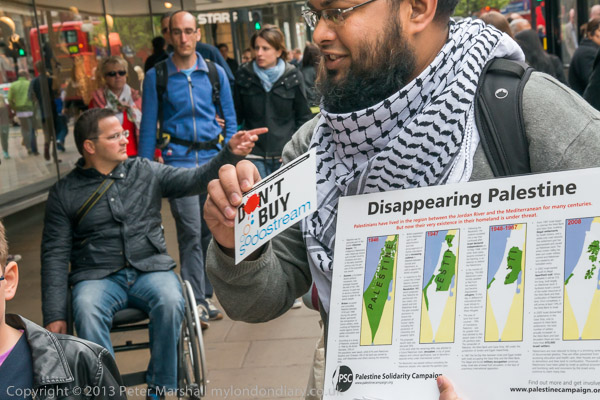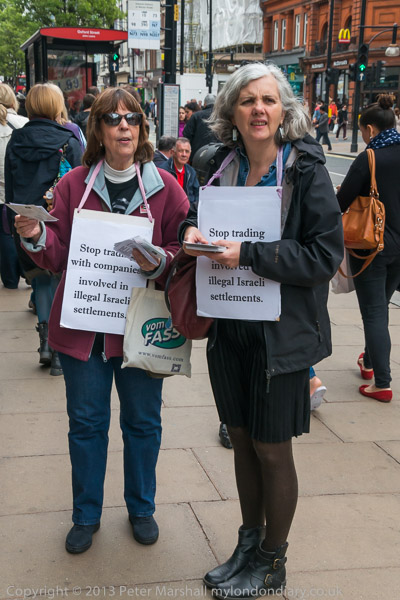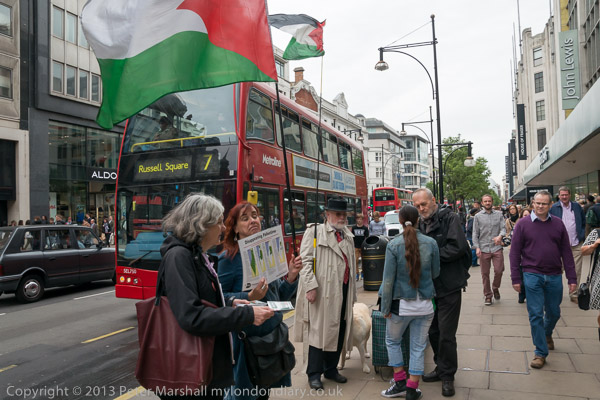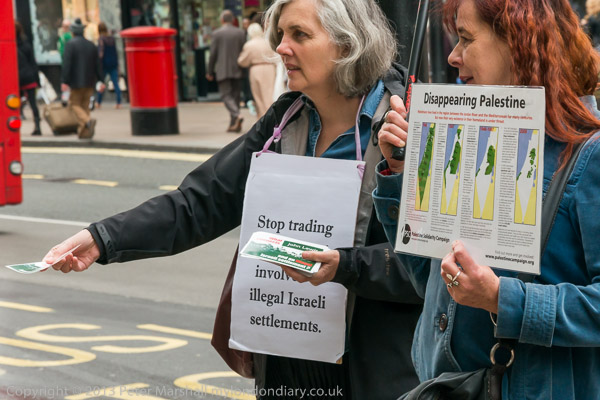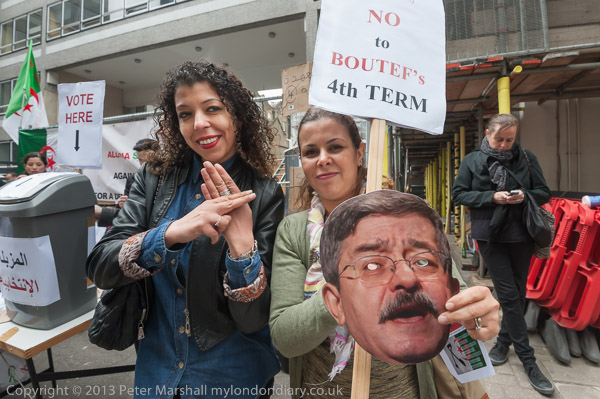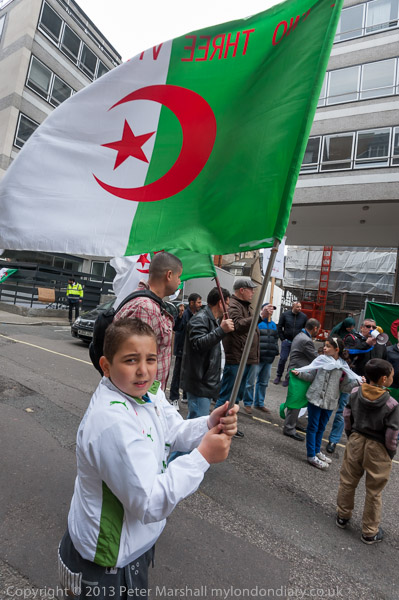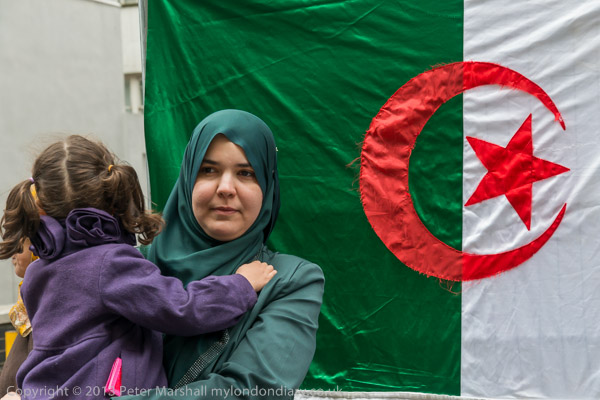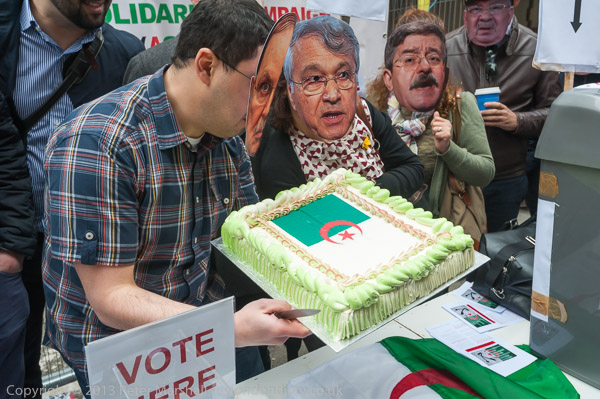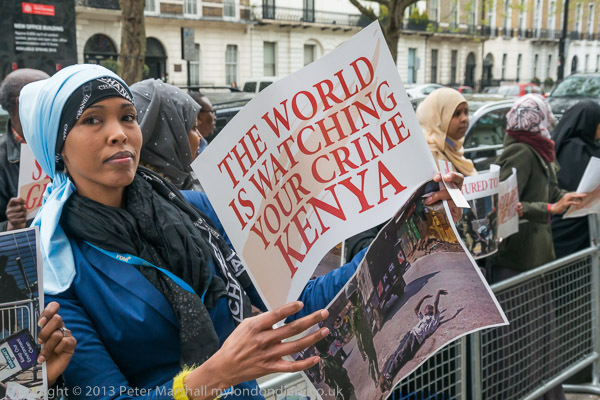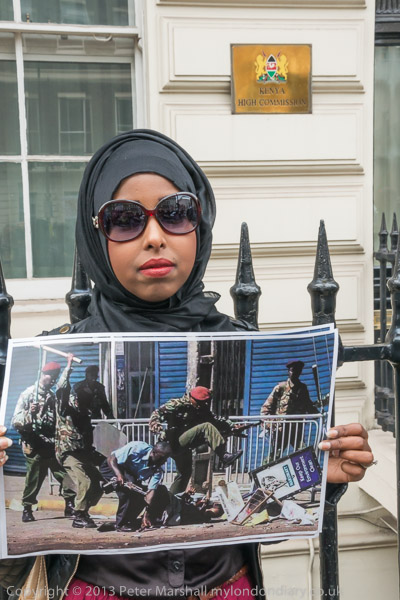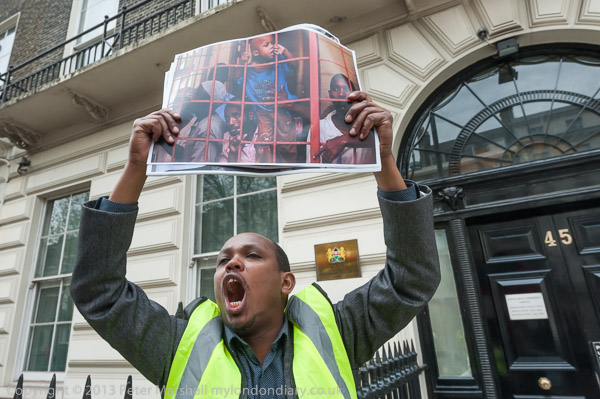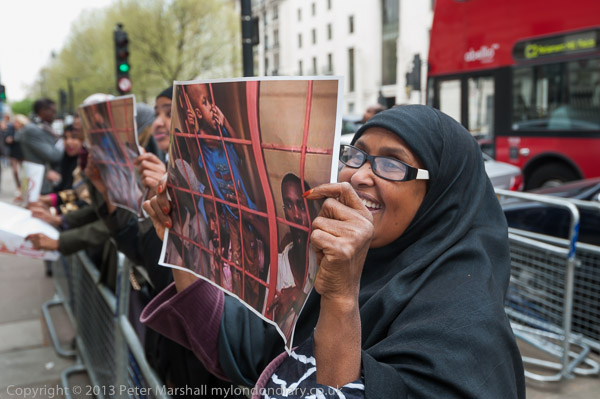Whitechapel & Illegal Dates; On Saturday 27th September 2014 I went to Whitechapel early to photograph campaigners who were to protest against Sainsbury’s who were selling dates and other goods from illegal Israeli settlements, in defiance of international law. Around two years earlier I had made a panoramic image of part of the new Royal London Hospital which interested me but I felt was not quite what I wanted.
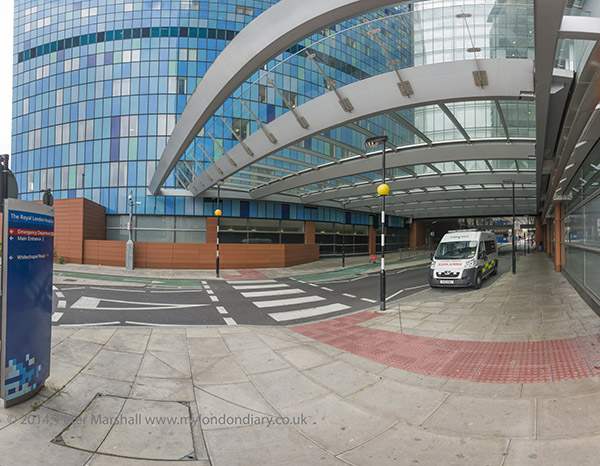
Going back to re-take photographs is often disappointing, with key features having changed, but I think this time I did at least come up with an improvement. This was a more complex panorama than most of those I now make, and needed me to stitch together three separate exposures. It would perhaps be a little better with some slight cropping on the botton edge.
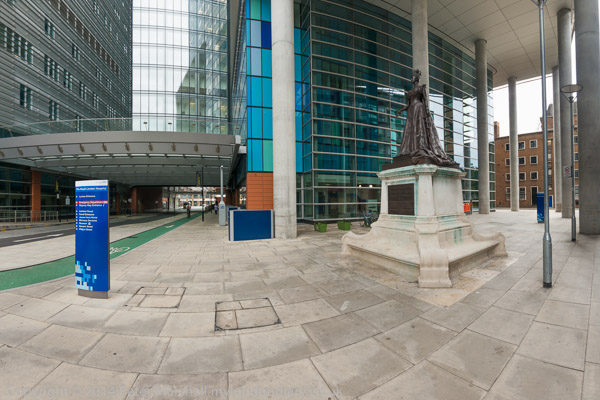
The Royal London Hospital has much great problems, all arising from the poor PFI deal that was used to finance its construction. All PFI schemes have turned out to be a mistake, but this was worse than most and I think has left the hospital group in financial trouble while providing excessive profits to the investors, with payments continuing for many, many years. The contract means they can charge silly prices for necessary services,
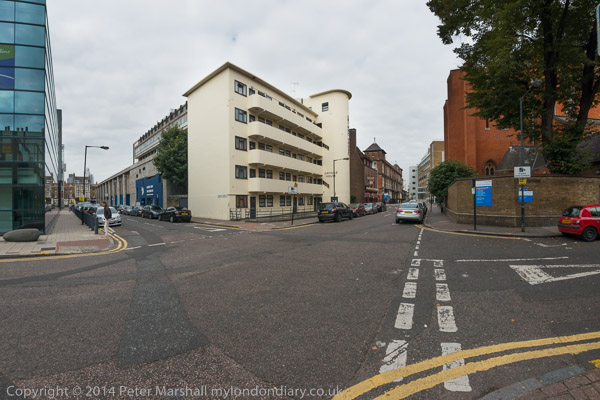
After several attempts at producing the picture I wanted I went for a short stroll around the area making a few more panoramic images before it was time to join th protest.
More pictures at By the Royal London.
Sainsbury’s told Stop Selling Illegal Goods – Whitechapel High St
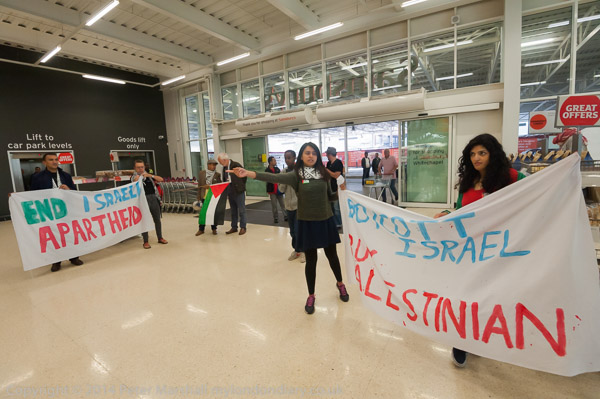
Campaigners from the Tower Hamlets & Jenin Friendship Association held a protest on the high Street close to Sainsbury’s, calling on the store to end selling dates and other goods from illegal Israeli settlements, in defiance of international law.
The protes was part of the international BDS campaign calling for a Boycott of Israeli goods, divestment from Israeli firms and sanctions against Israel until it ends the persecution of Palestinians and comes into line with international law and UN resolutions.
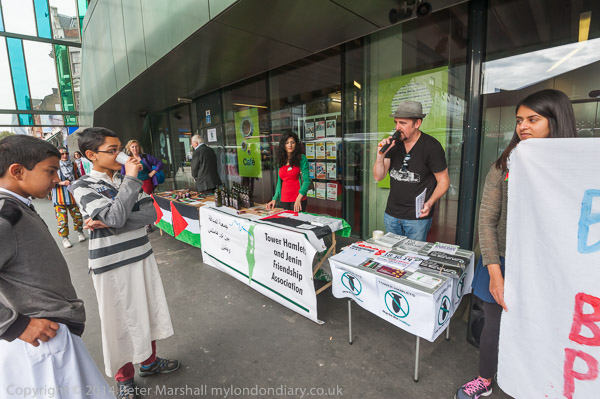
Similar protests earlier outside Co-op stores had led to the company in 2013 stating they would ‘no longer engage with any supplier of produce known to be sourcing from the Israeli settlements’.
The BDS campaign was given added impetus early in 2014 by the disproportionate use of force against the people of Gaza. During the recent Israeli attacks on Gaza over 2,100 Palestinians were killed, roughly 1500 of them civilians, among them over 500 children. 66 Israeli soldiers died, along with 5 Israeli civilians (including one child.) Over 500,000 people – roughly 30% of the population of the Gaza strip were displaced from their homes, and over 17,000 homes made uninhabitable, with over twice that number suffering less severe damage.
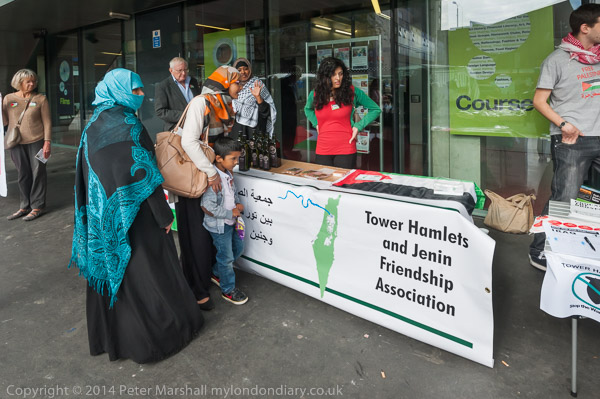
The raids also destoryed much of Gaza’s industry, including factories making biscuits, ice cream factory, plastics, sponges, cardboard boxes and plastic bags as well as the main electricity plant. Two sewage pumping stations were damaged, as were the main offices of the largest diary product importer and distributor.
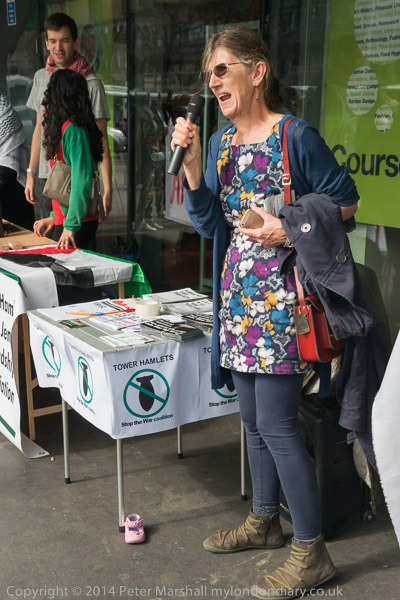
The protesters had several tables on the pavement outside the library on Whitechapel High St ,one selling Palestinian olive oil, almonds and a range of decorated purses etc. Some handed out leaflets and a postcard ‘Sainsbury’s: Taste the Indifference’, while others held banners or collecting signatures for petitions. At intervals people made short speeches about the Palestinian situation and the campaign to get Sainsbury’s to stop selling illegal Israeli goods.
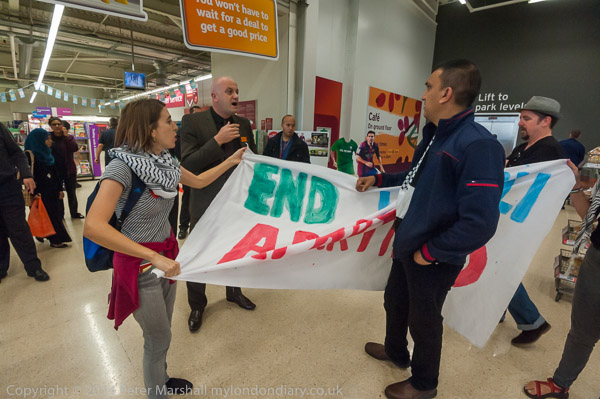
After an hour or so on the busy street, some of the protesters decided it was time to visit Sainsbury’s, just a couple of hundred yards away down a side-street. They folded up their banners and walked down to the store, where Sainsbury’s were ready and waiting for them with extra security on duty, and they were stopped in the very spacious lobby area in front to the store.
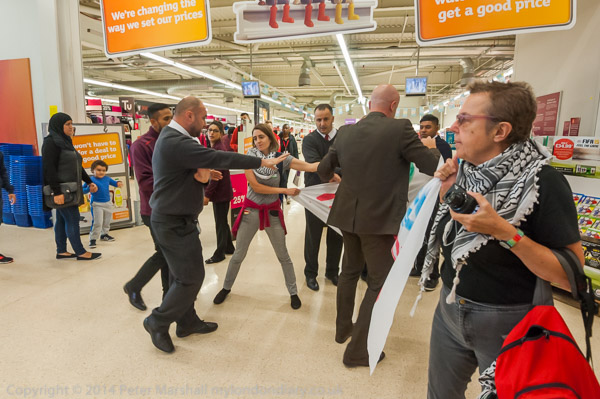
Here they opened up their banners and protested for a little over 10 minutes. There were a few moments of some tension, when store employees or security tried to grab one of the banners, but the whole protest and Sainsbury’s response was pretty civilised.
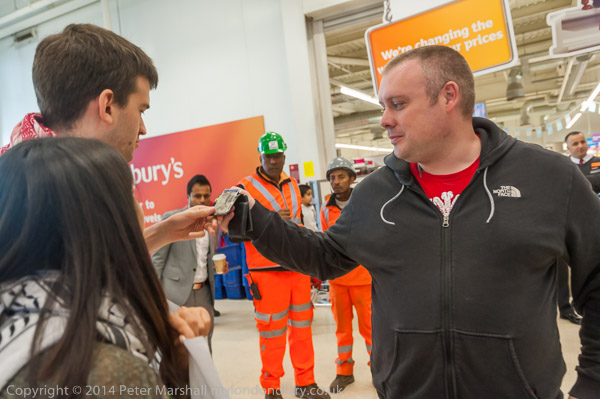
After 12 minutes, a man in casual dress arrived, and after asking the store manager to request the protesters to leave came across and talked with the the protesters, showing them his poolice warrant card and apologising that the police station didn’t have anyone in uniform available to send at the moment.
Having made their point by their protest, they decided to go quietly and a little exultantly back to the High Street, where others had been continuing the protest. Shortly after I decided it was time for me to leave.
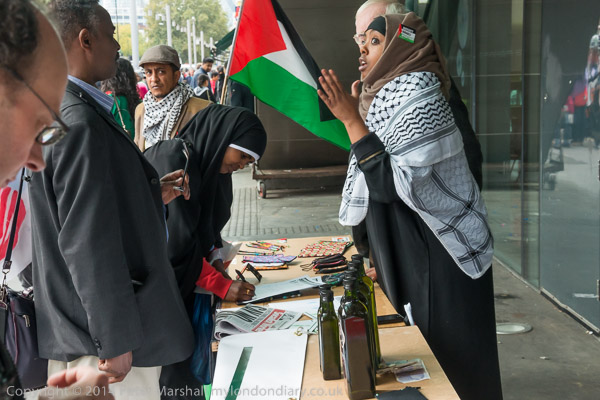
Sainsbury’s appears still to refuse to follow its own ethical guidelines and still apparently sells some products from the occupied West Bank and to deal with suppliers who source goods from there, although probably rather less than in 2014. They have claimed not to source goods from the occupied territories but do still deal with wholesalers who deliberately mislable such produce.
